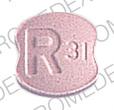Regroton Interactions
There are 572 drugs known to interact with Regroton (chlorthalidone / reserpine), along with 16 disease interactions, and 2 alcohol/food interactions. Of the total drug interactions, 21 are major, 518 are moderate, and 33 are minor.
- View all 572 medications that may interact with Regroton
- View Regroton alcohol/food interactions (2)
- View Regroton disease interactions (16)
Most frequently checked interactions
View interaction reports for Regroton (chlorthalidone / reserpine) and the medicines listed below.
- Aptivus (tipranavir)
- Avastin (bevacizumab)
- Blincyto (blinatumomab)
- Cerdelga (eliglustat)
- Corlanor (ivabradine)
- Crixivan (indinavir)
- Enbrel (etanercept)
- Entyvio (vedolizumab)
- Fasenra (benralizumab)
- Hemlibra (emicizumab)
- Intelence (etravirine)
- Isentress (raltegravir)
- Kalydeco (ivacaftor)
- Matulane (procarbazine)
- Norvir (ritonavir)
- NovoSeven RT (coagulation factor viia)
- Ofev (nintedanib)
- Orfadin (nitisinone)
- Prolia (denosumab)
- Pulmozyme (dornase alfa)
- Ravicti (glycerol phenylbutyrate)
- Remicade (infliximab)
- Repatha (evolocumab)
- Rescriptor (delavirdine)
- Revlimid (lenalidomide)
- Simulect (basiliximab)
- Stivarga (regorafenib)
- Sucraid (sacrosidase)
- Tecentriq (atezolizumab)
- Tecfidera (dimethyl fumarate)
Regroton alcohol/food interactions
There are 2 alcohol/food interactions with Regroton (chlorthalidone / reserpine).
Regroton disease interactions
There are 16 disease interactions with Regroton (chlorthalidone / reserpine) which include:
- depression
- PUD/ulcerative colitis
- anuria
- electrolyte losses
- liver disease
- lupus erythematosus
- renal function disorders
- peripheral edema
- biliary colic
- renal dysfunction
- asthma
- diabetes
- hyperlipidemia
- hyperparathyroidism
- hyperuricemia
- thyroid function tests
More about Regroton (chlorthalidone / reserpine)
- Compare alternatives
- Drug images
- Side effects
- Dosage information
- During pregnancy
- Drug class: antiadrenergic agents (peripheral) with thiazides
Related treatment guides
Drug Interaction Classification
| Highly clinically significant. Avoid combinations; the risk of the interaction outweighs the benefit. | |
| Moderately clinically significant. Usually avoid combinations; use it only under special circumstances. | |
| Minimally clinically significant. Minimize risk; assess risk and consider an alternative drug, take steps to circumvent the interaction risk and/or institute a monitoring plan. | |
| No interaction information available. |
See also:
Further information
Always consult your healthcare provider to ensure the information displayed on this page applies to your personal circumstances.


